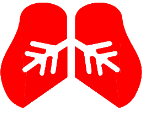
Cough is a classic symptom of the common cold. In addition to fatigue, runny nose, sore throat, it can be annoying and make you feel miserable.
A common cold typically runs its course after about a week and generally most of the symptoms go away. However, for some people, the cough can remain for a bit longer.
Here are a few things you should know about that persistent cough.
Coughing is a protective reflex
One purpose of a cough is to eliminate things that are in the lungs causing irritation. We expel mucus this way. The cough reflex also provides protection for your airway from possible choking hazards. Think of a time when you take a drink down the “wrong pipe” and we cough it out through our nose and mouth. This is a perfect example of this cough reflex.
Cough can be related to a common cold
Sometimes, as described above, the inflammation from a viral infection remains in our airway and results in a continued cough. So even after you start feeling better, your cough remains due to this inflammation. You should remember to drink plenty of fluids to keep your lung and sinuses hydrated and thin the mucus. This helps you to cough it out easier
Coughing can be worse at night.
During times of infection with sinus and nasal congestion or a runny nose, lying down and trying to sleep can trigger your cough. It is often perceived to be worse at night. This of course can make it really hard to sleep, resulting in increased frustration for you.
In turn, your lack of sleep starts to impact your daytime function which can result in a temporary cycle of misery.
If your cough persists for more than three weeks, you may have a chronic cough.
If you are coughing and still feeling sick after three weeks, then you should most likely see a doctor. Make an appointment to see your primary care physician. If necessary, your primary care doctor can refer you to an appropriate specialist.
Common causes of chronic cough that we see in our clinic are:
- Uncontrolled allergies from animals or pollen
- Uncontrolled asthma
- Side effects from medications
- Acid reflux
Warning signs that may indicate a serious illness
You should seek medical care if you are coughing up blood, have significant shortness of breath with the cough, are spiking fevers. Serious illnesses such as cancer and pneumonia need to be caught early.
